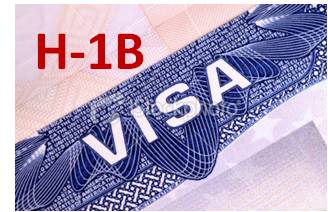The L-1 visa allows multinational companies to transfer executives, managers, or employees with specialized knowledge to a U.S. office. As a nonimmigrant status, the L-1 is designed to facilitate intracompany transfers and strengthen international business operations. However, this visa comes with specific limitations—particularly regarding employer flexibility. Unlike H-1B visas, L-1 status is tied to a particular sponsoring employer and a defined corporate relationship.
When an L-1 visa holder experiences a change in employment, whether due to promotion, corporate restructuring, or company shutdown, they cannot simply “switch employers.” U.S. Citizenship and Immigration Services (USCIS) requires continuity of the qualifying relationship between the U.S. company and the foreign entity. Any substantial change may require filing an amended Form I-129 or pursuing a change of status altogether. In this guide, we explain what types of changes affect your status, when amendments are needed, and how Pollak PLLC L1 visa lawyer helps companies and employees navigate this complex area of immigration law.
Trusted Immigration Guidance for Corporate Transitions
Pollak PLLC employment immigration lawyer works with global businesses and their personnel to manage L-1 transitions and minimize immigration risks. Our firm provides strategic guidance during mergers, internal transfers, company restructures, and unexpected closures.
Direct Involvement From Managing Attorney Karen-Lee Pollak
Managing Attorney Karen-Lee Pollak brings decades of experience advising executives and multinational businesses. Her leadership ensures that each matter—whether individual or corporate—is reviewed with long-term compliance and strategic planning in mind.
Strategic Solutions for International Staffing Disruptions
Whether you are downsizing, acquiring a new entity, or shifting teams across regions, we help assess how those changes affect L-1 status. Our firm evaluates the scope of the restructuring and advises whether continued employment under existing terms is viable or whether a new visa petition is needed.
Support for Executives, HR Teams, and Global Mobility Managers
L-1 petitions often involve collaboration between employees, human resources, legal counsel, and immigration officers. Pollak PLLC coordinates directly with your HR and legal teams to ensure consistent documentation, timely responses to USCIS inquiries, and minimal disruption to business operations.
Proactive Guidance for Preserving L-1 Compliance Across Transitions
We work to preserve lawful nonimmigrant status during job changes, relocations, or terminations. From advising on grace periods to planning a change of status, our firm helps reduce legal exposure while maintaining employee eligibility.
Why the L-1 Visa Is Employer-Specific
The L-1 visa is granted based on the existence of a qualifying relationship between a U.S. company and its foreign affiliate, parent, subsidiary, or branch. The visa petition submitted to USCIS clearly identifies the sponsoring employer, the employee’s role, and the specific business connection between the two entities.
Because of these requirements, the L-1 visa cannot be transferred to a new or unrelated employer. An intracompany transferee must remain employed within the same corporate structure. Any effort to work for a separate organization—even in the same industry or role—will require a new petition or a change of status to a different visa, such as the H-1B. Maintaining lawful status requires strict adherence to 8 C.F.R. 214.2(l), which outlines the duties, reporting structure, and business affiliations necessary to qualify.
What Qualifies as an Eligible Corporate Relationship?
A core requirement of L-1 eligibility is the presence of a qualifying relationship between the U.S. employer and the foreign company where the employee previously worked. If the company changes ownership, expands into new areas, or restructures internally, this relationship must still be preserved.
Parent and Subsidiary Companies
The U.S. entity may be a subsidiary of a foreign parent company, or vice versa. This ownership structure must be clearly documented and remain intact throughout the employee’s stay. A breakdown in control between the parent company and its subsidiary can lead to a loss of L-1 eligibility.
Branches and Offices of the Same Organization
Many companies operate as international branches of a single legal entity. These branches are generally recognized by USCIS as having a qualifying relationship. However, significant operational changes or the sale of a branch may disrupt that relationship and require a new petition.
Common Control and Affiliate Definitions
Affiliates are companies that are owned and controlled by the same parent organization or individuals. Proving common ownership and control can be more complex and must be carefully supported by financial documents, ownership records, and organizational charts. Pollak PLLC assists clients in reviewing and documenting this structure to meet USCIS expectations.
Situations That May Trigger an L-1 Amendment
Not all changes require a new petition. Some changes within the same sponsoring employer may be permissible if they are minor or administrative. Others may require filing an amended Form I-129 to reflect a material change in the terms of employment.
Worksite Relocation to a Different Metropolitan Area
If an employee moves from one U.S. city to another—especially if it changes the region of intended employment listed in the original petition—USCIS may require an amended filing. The physical worksite is a key element of the visa approval, and changes must be reported accordingly.
Promotions to New Roles or Departments
When an L-1 employee is promoted, the new role must still fall within the approved visa category. For example, an executive on an L-1A visa must continue to perform executive-level functions. Shifting from an executive to a technical role may no longer qualify and could require refiling under a different visa classification.
Material Changes in Job Duties or Title
If the employee’s duties shift significantly or if the position evolves beyond what was described in the original petition, this may be considered a material change. Pollak PLLC reviews role descriptions and helps determine whether a formal amendment is needed to preserve status.
What Happens if the Sponsoring Company Shuts Down or Sells?
When a sponsoring employer goes through a major change, the L-1 visa holder’s status is at immediate risk. USCIS requires continuity in both employment and the qualifying business relationship. If either breaks down, the employee may lose their status unless other legal action is taken.
Change in Ownership Without Continuity of Operations
A company that is sold to an unrelated business without retaining its foreign ties may no longer meet the definition of a qualifying relationship. Even if operations continue under a new name, the visa petition may be considered invalid. In these cases, USCIS must be notified, and a new petition may be necessary.
Options if the U.S. Office Closes
If the U.S. office shuts down entirely, L-1 employment ends, and the visa holder is generally granted a 60-day grace period to make a lawful transition. During this time, the individual may file for a change of status, prepare for departure, or begin a new application under a different employer. Legal advice is strongly recommended at this stage.
Navigating Layoffs and Job Loss on L-1 Status
Unlike H-1B visa holders, L-1 employees cannot transfer to another employer while maintaining the same visa. If the sponsoring company eliminates the employee’s role, the visa is no longer valid. Pollak PLLC helps assess available alternatives and guides clients through urgent filings or exit strategies.
Can You Change to a Different Employer While on L-1?
L-1 visa holders may not simply take a new job offer from an unrelated U.S. company. The L-1 is employer-specific and does not allow open market employment. However, there are other immigration options available when a job change becomes necessary.
Changing to H-1B or Another Nonimmigrant Visa
If a U.S. company offers a qualifying job, the L-1 employee may apply for a change of status to the H-1B visa or another nonimmigrant category. Timing is critical, as USCIS must approve the change before the L-1 status expires. H-1B petitions are also subject to caps and must be planned well in advance.
Exploring Green Card Options Like EB-1C
Some L-1A visa holders may already be on track for permanent residency through the EB-1C immigrant category for multinational managers and executives. If the sponsoring employer remains involved, the green card petition can proceed even if job duties evolve. Pollak PLLC helps evaluate green card readiness and prepares complete applications.
Departing and Re-Entering on a New Petition
If a new employer has a qualifying relationship with a foreign entity, they may file a new L-1 petition. Once approved, the employee may re-enter the U.S. under the new employer’s sponsorship. This is more common in mergers or carve-outs, where a new company inherits the employee’s responsibilities and foreign ties.
When to File an Amended Petition or Change of Status
Understanding when to file Form I-129 again is critical to preserving legal status. USCIS expects companies and employees to report material changes promptly and to maintain compliance throughout the visa’s validity period.
An amended petition is required when the job location, role, or corporate relationship changes materially. A change of status is needed if the employee is switching to a completely different visa classification. Both actions involve legal filings, evidence, and potential delays. Unauthorized employment—even for a brief period—can jeopardize future immigration benefits and trigger enforcement actions.
Pollak PLLC helps determine which path is appropriate and prepares filings that meet USCIS standards under 8 C.F.R. 214.2(l). We also provide transition strategies for clients approaching the end of their L-1 validity period, ensuring that all work authorization is lawfully maintained.
Talk to an L-1 Visa Lawyer Before Changing Employers
Changing jobs on an L-1 visa is not a simple decision. Because this visa depends on a specific employer, business relationship, and defined duties, even minor adjustments can have immigration consequences. Individuals and companies must proceed with caution when navigating promotions, restructures, or terminations.
Pollak PLLC has extensive experience advising L-1 visa holders and sponsoring employers through these transitions. Whether you are exploring a new opportunity or responding to a business shift, our immigration attorneys can help you preserve compliance and chart a secure path forward. Contact us today to schedule a consultation. We serve clients across the United States and offer services in English, Spanish, and other languages from offices in Dallas and Fort Lauderdale.




